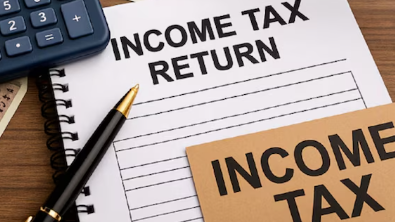

New Delhi: The Income Tax Department has provided significant relief to taxpayers by extending the ITR filing deadline for Assessment Year 2025-26 from July 31 to September 15, 2025. This extension benefits millions of salaried employees, pensioners, and small business owners who don't require tax audits.
However, taxpayers must understand that this ITR extension doesn't affect all tax-related deadlines. Here's everything you need to know about advance tax schedules and interest penalties.
The September 15, 2025 deadline applies to:
Critical Point: The ITR extension does NOT affect advance tax payment schedules. Advance tax obligations under Sections 208-219 of the Income Tax Act continue as per the original quarterly timeline:
| Due Date | Minimum Tax Percentage |
|---|---|
| June 15 | 15% of total tax liability |
| September 15 | 45% (cumulative) |
| December 15 | 75% (cumulative) |
| March 15 | 100% (cumulative) |
Important: Missing advance tax deadlines will still trigger interest charges under Sections 234B and 234C, regardless of the ITR filing extension.
According to tax experts, "The ITR extension provides filing relief but doesn't alter advance tax compliance requirements. Interest penalties remain applicable for delayed or insufficient advance tax payments."
If you owe additional tax after adjusting TDS and advance tax while filing your return, this constitutes self-assessment tax. Under the extended timeline:
Section 234A: Applies to late ITR filing - avoided if you file by September 15Section 234B: Charges for failure to pay advance tax - unaffected by ITR extensionSection 234C: Penalty for deferment of advance tax installments - original deadlines apply
Taxpayers expecting refunds gain additional advantages from this extension. The delayed filing timeline may result in up to 33% higher refund interest under Section 244A, particularly benefiting:
To avoid penalties and maximize benefits:
Salaried individuals typically don't require advance tax payments if tax is fully covered through TDS. However, advance tax becomes mandatory when additional income sources (rental income, capital gains, F&O trading, or interest income) create tax liability exceeding ₹10,000.
The ITR filing extension to September 15, 2025, offers welcome relief for documentation and filing processes. However, taxpayers must maintain vigilance regarding advance tax deadlines and interest calculations. While the extension simplifies ITR submission, it doesn't modify other tax compliance requirements that could result in penalty charges.